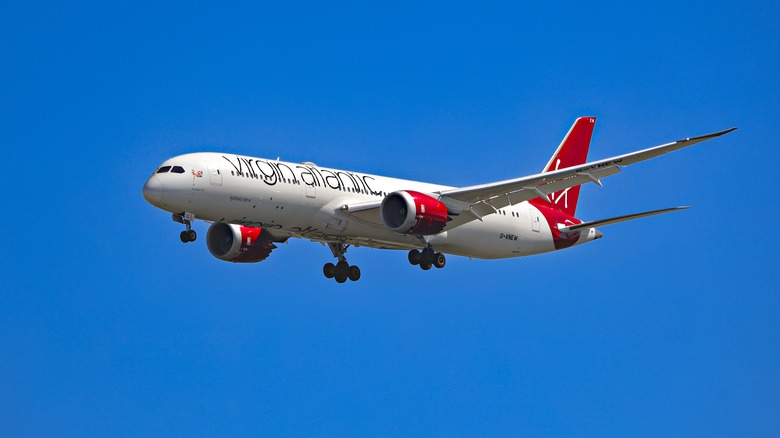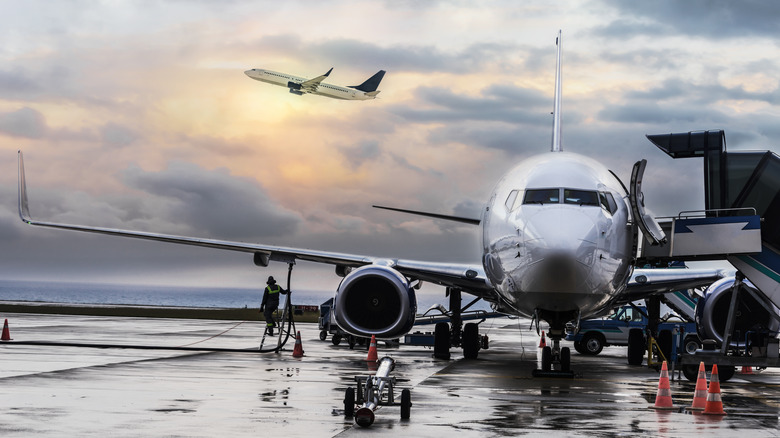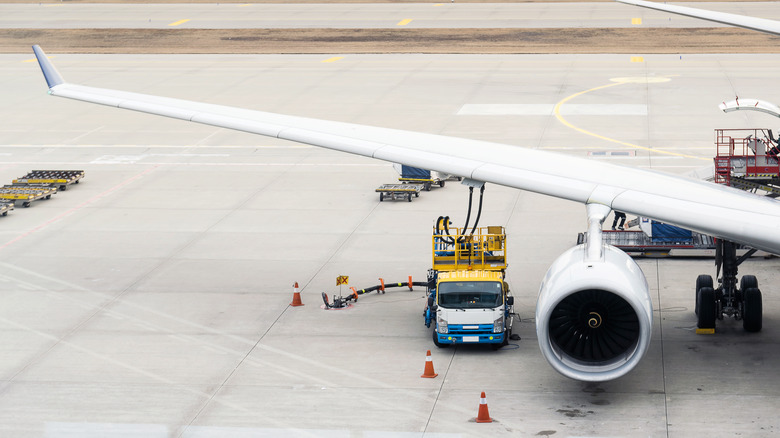Virgin Atlantic Champions Sustainable Aviation Jet Fuel: Could It Be The Key To Cleaner Skies?
Virgin Atlantic, the British airline owned by eccentric billionaire Richard Branson, is in the news after the company operated the world's first transatlantic flight completely powered by Sustainable Aviation Fuel (SAF). The flight, which the company calls Flight 100, operated under the callsign VIR100, took off from London's Heathrow Airport at roughly 11:50 AM local time on November 28, 2023, and landed at New York's JFK Airport a little over 7 hours later.
While Virgin touted the flight as the world's first to be powered 100% by SAF, it is pertinent to note that this particular flight did not carry any paying passengers. Instead, flight VIR100's manifest mostly included several Virgin Atlantic officials, a handful of scientists, and media persons. For the purpose of this flight, Virgin Atlantic used one of its Boeing 787 aircraft, currently one of the most widely used widebody jets in the world.
According to Virgin Atlantic, the decision to operate a transatlantic flight using 100% sustainable aviation fuel was to demonstrate that SAF has the potential to become a viable alternative to fossil-derived jet fuel, which is the mainstay of the commercial aviation business. The company went on to add that switching to SAF could potentially lead to CO2 lifecycle emissions savings of up to 70%, without any noticeable performance aberrations compared to traditional jet fuel.
While all this sounds great, is SAF really the magic potion that could fix the emission woes plaguing global aviation?
What is Sustainable Aviation Fuel?
Put simply, Sustainable Aviation Fuel (SAF) is a more sustainable version of jet fuel that is not derived from traditional fossil fuels. Instead, SAF is primarily made using waste products such as agricultural residues, waste oils, and biomass. As with traditional jet fuel, the production of SAF involves several processes — at the end of which — you are left with a fuel that has the same composition as traditional jet fuel.
The biggest advantage of SAF is the fact that its use doesn't require airline companies and engine manufacturers to make major (and expensive) modifications to the engines to make the switch. In fact, most modern jet engines are already certified to operate with SAF. However, existing regulatory red tape restricts airline companies from operating commercial flights that use more than a 50% blend of SAF. For the same reason, Virgin Atlantic had to seek a special permit from the UK Civil Aviation Authority to operate Flight 100.
However, indications are that regulators are gradually warming up to the potential advantages that widespread adoption of SAF brings to the table. This, perhaps, is the best explanation for the recent spike in the number of SAF-powered flights of late. As recently as last week, Dubai-based Airline Emirates used SAF to power one of the four engines of an Airbus A380 superjumbo aircraft. Gulfstream — the company noted for its business jets — also completed a transatlantic flight on an aircraft that was 100% powered using SAF.
The International Air Transport Association (IATA) is bullish on the prospects of SAF and sees it as a major factor that would allow the industry to achieve its net-zero emissions by 2050.
Is Sustainable Aviation Fuel really the answer?
While everything you have read thus far makes it seem like SAF is the next best thing to happen to aviation since the arrival of the jet engine, the reality is far from pleasant. The greatest barrier to the adoption of SAF is arguably the most important one: cost. Currently, SAF is six times as expensive as traditional jet fuel, making it an unattractive proposition right from the get-go.
And while increased production and better, more efficient manufacturing techniques may bring the cost of production down in the next few years, scaling up the production of SAF is likely to come with its own set of challenges. A report by the Royal Society, the UK's national Academy of Sciences, has indicated that it would take more than half of the U.K.'s agricultural land to produce enough SAF to meet the demands of the country's domestic airline industry.
While SAF holds promise as a potential alternative to traditional jet fuel, its environmental impact remains uncertain due to the diverse production methods it encompasses. Further research is crucial to fully evaluate its sustainability. In its current state, SAF falls short of being a viable replacement for conventional jet fuel. However, advancements in production technology and cost reductions could propel SAF towards becoming a more attractive option. Notably, SAF could serve as a transitional solution while the aviation industry pursues genuinely zero-emission technologies.


